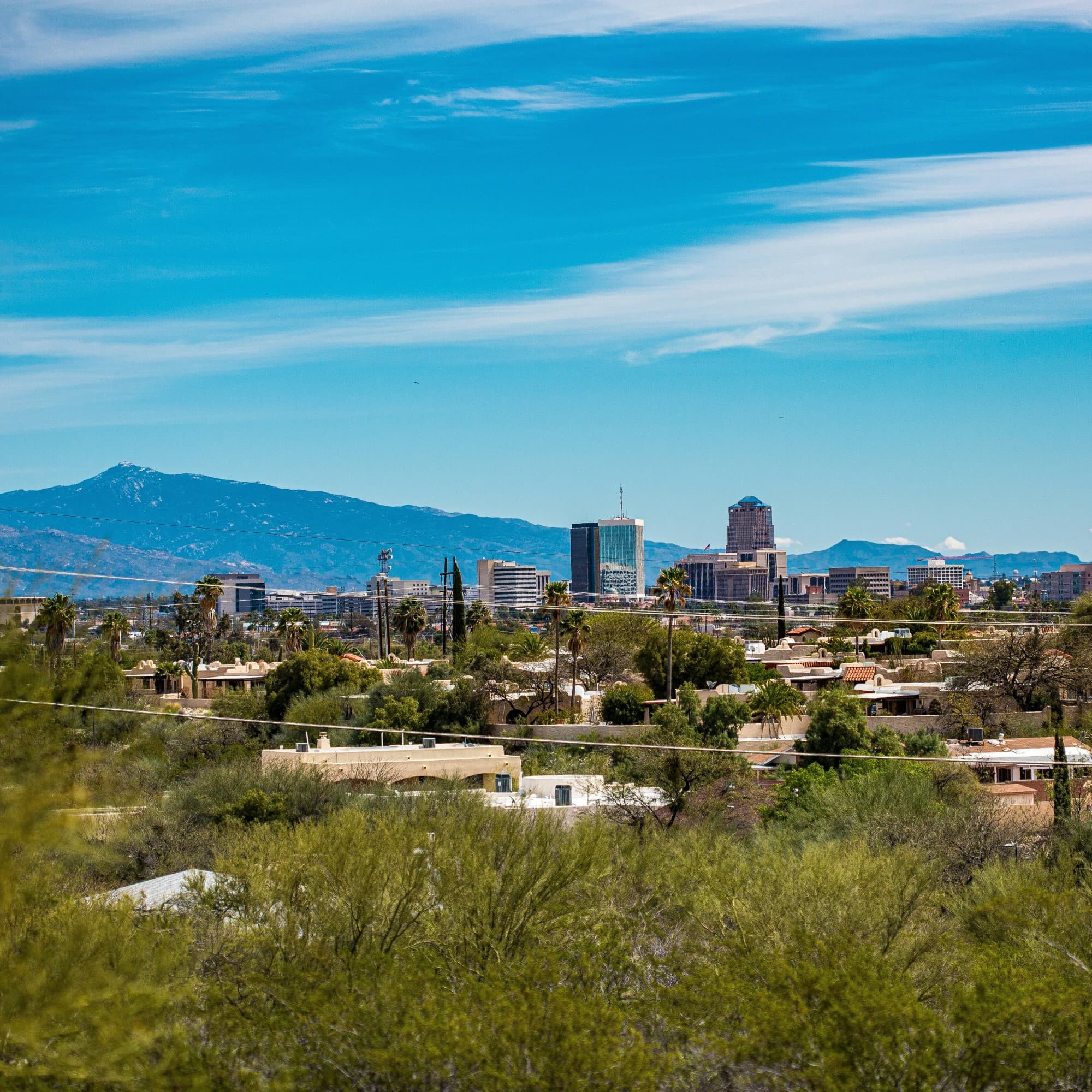
Top 6 Issues in Arizona in 2024: An Overview
In 2024, Arizona finds itself at a tipping point, with numerous challenges and opportunities on the table as election season approaches. Join us as we explore some of the most pressing issues in Arizona for the 2024 elections:
Arizona’s Top Issues in 2024
#1: Arizona’s Political Landscape: A State Divided?
The Arizona political landscape has changed much in recent years, with the state becoming a political battlefield in American politics. Over time, relevant demographic shifts, changing voter leanings, and an increasingly sizable independent voter bloc have shattered the state’s reliable Republican bastion and disrupted the status quo.
With candidates campaigning fervently for votes in an intensely competitive political milieu, the upcoming elections present an opportunity for both major and minor parties to demonstrate their strength and provide solutions to the political challenges Arizona faces.
#2: Arizona’s Economic Outlook
Arizona’s economic outlook is one of the main issues in 2024, both for voters and candidates. The economy of the state has consistently expanded, with a GDP of $426 billion by 2022. But there are fears of how the Arizona economy is being affected by various factors:
Inflation: Inflation in Arizona has been increasing, amounting to 8.8% in 2022. This has resulted in increased business and consumer costs and a loss of purchasing power in households.
Rising Interest Rates: The Federal Reserve has increased interest rates to address inflation. It has increased the cost of borrowing for businesses and consumers and thus impedes the growth rate of the Arizona economy.
Potential Economic Headwinds: The global economy is plagued by a number of challenges including the lingering COVID-19 pandemic and the war in Ukraine.
These issues should be addressed by political candidates, laying out their plans to promote economic development through addressing the economic concerns in Arizona. These strategies must feature policies aimed at the support of businesses, employment, and economic growth.
#3: Healthcare Issues Facing Arizona
Healthcare is a primary concern for Arizona voters in 2024. Here are some of the main reasons why:
Rising Arizona Healthcare Costs: A recent report found that Arizona spends $10,210 per capita on healthcare each year. This is due to a number of reasons such as high drug prices, the consolidation of hospitals and health systems, and the rising cost of medical technology.
Access to Affordable Care: While the number of Arizonans covered by health insurance increased slightly in 2022, Arizona still lags behind the rest of the United States in healthcare coverage.
Ongoing COVID-19 Pandemic: The Arizona healthcare system has been significantly affected by the COVID-19 pandemic. This has created pressure on the state’s hospitals and health care providers.
Workforce Shortages: Arizona lacks healthcare workers, including doctors, nurses, and other health workers. This scarcity poses a challenge in providing adequate care for the state’s residents.
Mental Health and Substance Abuse: Mental health and substance abuse are major problems in Arizona healthcare. Between 2020 and 2021 alone, 3,888 Arizona residents died from opioid overdoses. Compared to other states, in 2019 Arizona ranked 17th in the nation for the highest number of drug overdose deaths.
#4: Arizona’s Education System
Over the years, numerous political debates and reform movements have been centered on Arizona’s education system. Here are some of the state’s top concerns related to education in 2024:
School Funding: Arizona requires support on appropriate funding for its schools. Solutions to this problem may include increasing state financial support for education or looking into new approaches to school funding.
Teacher Salaries: In 2024, the average teacher salary in Arizona is $54,580, compared to the national average of $62,812. With an average teacher salary below the national average, Arizona should consider how best to attract and retain quality teachers who will educate the state’s next generation of leaders.
Curriculum Standards: Arizona's curriculum standards are currently in the process of being revised.
Achievement Gap: Arizona has consistently experienced an achievement gap between student groups. This difference needs to be corrected if all the students are to have equal chances of success in the Arizona education system.
#5: Arizona’s Social Policy
Social issues, such as abortion rights, LGBTQ+ rights, and immigration, will come center stage as candidates debate their policy positions in the 2024 elections. Here are the core issues voters and candidates are likely to focus on this year:
Abortion Rights: The question of abortion law has been a consistent rift in American politics, and Arizona is no exception. Pro-life and pro-choice candidates will make their policy positions known during this election cycle.
LGBTQ+ Rights: 4.5% of Arizona’s population currently identifies as being part of the LGBTQ+ community. Combatting discrimination, fostering tolerance, and protecting the interests of the LGBTQ+ community in different fields of daily life are important concerns for Arizona.
Immigration: Immigration is among the major social issues in Arizona, and has far-reaching consequences for the state’s economy, culture, and social fabric.
#6: Arizona’s Environmental Issues
The state of Arizona, famous as a home to stupendous desert areas and various ecosystems, is now confronting numerous environmental issues:
Water Shortage: The combination of water scarcity and population growth are putting Arizona’s water supply to the test. Political candidates in 2024 may propose investments in water infrastructure facilities, water conservation programs, or other innovations.
Air Pollution: Air pollution is another environmental concern in Arizona, particularly in urban areas.
Climate Change: One of the biggest environmental and economic problems facing the state of Arizona is climate change. Already, increased temperatures, changes in precipitation patterns, and more frequent extreme weather events are affecting water resources, crop production, and the ecosystem in the state.
Top Issues in Arizona’s 5 Largest Cities
Besides state-wide issues, these five big cities in Arizona face specific challenges that will be relevant to the 2024 elections:
#1: Civic Priorities in Phoenix
Phoenix, as the state capital and largest city in Arizona, struggles with problems like housing affordability, the condition of transportation infrastructure, and homelessness. Candidates for local government positions will have to respond to these challenges and present their strategies on improving the city’s level of livability and sustainability.
#2: Community Issues in Tucson
In terms of economic development, public safety, and education, Tucson has its own issues to grapple with. Political candidates should highlight these topics and demonstrate how they plan to meet the needs of their community.
#3: Public Policy in Mesa
There are growth management, water conservation, and public safety issues that have to be addressed in Mesa, the third-largest city in Arizona. Candidates should express their views on these issues and indicate how they intend to cope with and steer the city’s development and growth.
#4: Voter Concerns in Chandler
Chandler is facing issues concerning transportation infrastructure, public safety, and economic growth. Candidates will need to tackle these issues and outline their strategies to rejuvenate the city’s infrastructure and increase employment opportunities.
#5: The Political Landscape in Scottsdale
Scottsdale faces problems related to tourism, high-end development, and sustainability. Local candidates should provide blueprints on how they will achieve a balance between the growth of the city’s economy and the preservation of its natural resources in order to improve the Scottsdale political landscape.
Get Involved in Local Politics in Arizona
As the 2024 elections approach, it’s time to think about how you can get involved and make a difference in your community in Arizona. There are a number of ways you can make an impact:
Run for local office. Have you ever wondered if you have what it takes to run for office in Arizona? 2024 is the year to make it happen! Book a meeting today to learn how you can get ready to run for office this year — and get access to free campaign tools to help you along the way.
Register to vote. Make sure you’re registered to vote, so you can make your voice heard in the 2024 elections.
Volunteer. Consider volunteering with a local organization, for a local political candidate’s campaign, or for a national organization like GoodParty.org. We’re working to reform political dysfunction across the United States, including in Arizona.
Stay informed. By looking into the top issues in your state, you’re already on the way to making a difference by staying informed. Check out up-to-date information and news stories from unbiased sources.
However you choose to get involved, know that your voice matters, and you have the power to make a difference in your community!
Photo by Manny Pacheco on Unsplash
